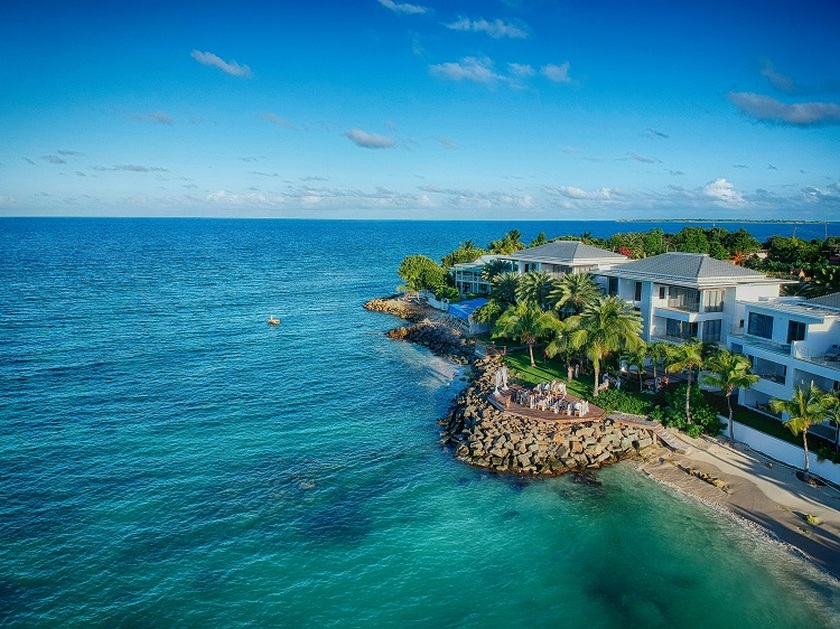Antigua and Barbuda comprise two islands, with Antigua being the “older sibling” in terms of size and infrastructure. Several smaller, uninhabited islands are also part of the nation. The country is surrounded by the Caribbean Sea and the Atlantic Ocean, with a population of 100,000. The capital is St John’s. The climate here is tropical but not extreme, with lower-than-average humidity and mild winds compared to other parts of the Caribbean. The average temperature is 28°C, and the sea is just as warm. The hurricane season runs from June to November, so it’s important to be prepared for this period. In terms of safety, Antigua and Barbuda is one of the safest places in the Caribbean Community. Visitors and residents are advised to take usual precautions, such as avoiding isolated areas, only using licensed taxis and vendors, and not carrying expensive items or large amounts of cash. English is the official language and is spoken everywhere in the country. The official currency is the Eastern Caribbean Dollar, though US Dollars are accepted universally. Most establishments accept both cash and credit cards.
Travel Benefits and Opportunities
- Travel advantages: An Antigua and Barbuda passport offers visa-free travel to over 150 countries, including the UK and Schengen Area.
- Tax benefits: There is no capital gains tax, inheritance tax, or wealth tax.
- Business opportunities: The islands offer a conducive environment for business. The stable political climate, tax regime, and strategic location make it an excellent place to start or expand a business.
Citizenship Options
One can become a citizen through marriage, descent, or long-term residency. However, the Antigua and Barbuda Citizenship by Investment programme can grant citizenship in just 6 months.
- Contribution to the National Development Fund, at least $100,000. A non-refundable option.
- Contribution to the University of the West Indies Fund, at least $150,000. A non-refundable option.
- Purchase of government-approved real estate for at least $200,000. The investment can be returned in 5 years.
- Investment in a local business, either solely or jointly, at least $400,000. Investment returns depend on the business’s success.
Updated Investment Requirements
Important: Starting from 26 July 2024, Antigua and Barbuda will increase the minimum investment threshold:
- Contribution to the National Development Fund will be $230,000+
- Contribution to the University of the West Indies Fund will be $300,000
- Real estate investment will be $325,000
- The investment threshold for local businesses will remain the same.
Investors can include their families, including spouses and financially dependent children, parents, and siblings. Additional fees apply, depending on the number of applicants.
Property Market Insights
The local property market is diverse, offering something for every taste and budget. Many properties boast stunning views of the Caribbean Sea, private pools, and access to exclusive amenities. Property in Antigua and Barbuda is a profitable investment, yielding between 2% and 8%. This is due to the nation’s popularity among holidaymakers, expatriates, and wealthy retirees. Property prices here rise by 5% annually, with current costs between $3,500 and $8,000 per square metre. Investing in commercial property is once again a popular way to gain Antigua and Barbuda citizenship.
Property purchase process: Foreign buyers must obtain a Non-Citizens Landholding Licence, which costs around 2.5% of the property’s value. Legal fees, stamp duties, and registration fees also apply. Working with a local estate agent can simplify the process.
Cost of Living in Antigua and Barbuda
The cost of living in Antigua and Barbuda is relatively high compared to other Caribbean nations. However, it is more affordable by Western standards, and the quality of life makes it worthwhile.
- Basic utilities – $300 per month;
- Groceries – $500 per month;
- Apartment rental – $500 per month;
- Petrol – $1.5 per litre;
- Monthly transport pass – $33;
- Private kindergarten – $200 per month;
- Dinner for two at a restaurant – $90 for a three-course meal.
Imported goods can be expensive, but local produce and seafood are affordable and plentiful. Dining at local restaurants offers a taste of the rich Caribbean cuisine without breaking the bank.
Healthcare and Education
Healthcare is a significant consideration. While public healthcare services are available, many expatriates prefer private healthcare for its higher standards. International health insurance is recommended. Education options include local and international schools, providing quality education for expatriate children.
Recreational Activities
Antigua and Barbuda offer sailing, snorkelling, and diving, which are popular due to the clear waters and vibrant marine life. The islands also host numerous festivals, such as the Antigua Carnival, showcasing local culture and traditions.
Community and Communication
The community is welcoming and diverse. English is the official language, making communication straightforward for many newcomers.
- Antigua and Barbuda is an excellent choice for expatriates, thanks to its high standards of living, safety, Caribbean climate, and Commonwealth status.
- Benefits of the Antigua passport include visa-free travel to over 140 countries, including EU states, tax relief, and opportunities for international business and banking. The country also allows dual citizenship.
- The citizenship by investment programme enables foreign families to become Antigua and Barbuda citizens in several months. The minimum investment is $100,000 but will increase to $230,000 starting from 26 July 2024.
What about you, have you ever been to Antigua and Barbuda? Feel free to share any tips & advice below!





